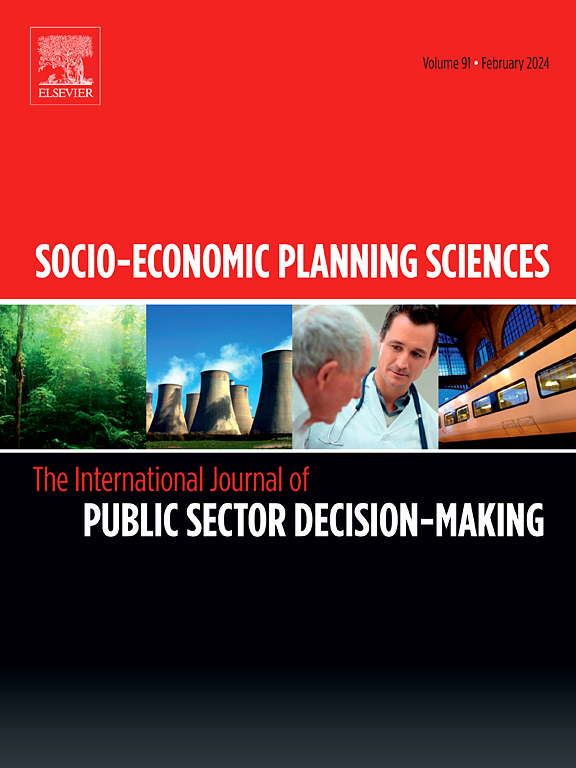循环经济中可持续消费行为的政治制度视角探讨:基于轻推理论的结构方程建模方法
IF 5.4
2区 经济学
Q1 ECONOMICS
引用次数: 0
摘要
采用结构方程建模方法,对548名大学生进行了调查,以研究循环经济背景下基于轻推的策略和政治制度支持对可持续消费者行为的影响。研究结果表明,选择结构的细微变化可以积极地改变消费者对可持续性的态度,提高可持续性认知会增加购买环保产品的意愿。然而,一个意向-行为差距出现了,表明潜在的障碍,如基础设施的限制,财政约束和习惯行为。这项研究还强调了机构支持和公共政策在促进可持续消费者行动方面的关键作用。研究认为,将轻推策略与强有力的政治制度支持相结合,可以有效促进可持续消费行为,从而在循环经济框架下促进环境保护和经济可持续发展。本文章由计算机程序翻译,如有差异,请以英文原文为准。
Exploring the political-institutional perspective of sustainable consumer behavior within the circular economy: a structural equation modeling approach from nudge theory
Employing a structural equation modeling approach, 548 university students were surveyed to examine the influence of nudge-based strategies and political-institutional support on sustainable consumer behavior within the context of the Circular Economy. The findings reveal that subtle modifications in choice architecture can positively shift consumer attitudes toward sustainability and that heightened sustainability perception increases the intention to buy eco-friendly products. However, an intention-behavior gap emerged, suggesting potential barriers such as infrastructural limitations, financial constraints, and habitual behaviors. The research also underscores the crucial role of institutional support and public policies in facilitating sustainable consumer actions. The study concludes that integrating nudge-based strategies with robust political-institutional support can effectively promote sustainable consumption behaviors, thereby advancing environmental conservation and sustainable economic development within the circular economy framework.
求助全文
通过发布文献求助,成功后即可免费获取论文全文。
去求助
来源期刊

Socio-economic Planning Sciences
OPERATIONS RESEARCH & MANAGEMENT SCIENCE-
CiteScore
9.40
自引率
13.10%
发文量
294
审稿时长
58 days
期刊介绍:
Studies directed toward the more effective utilization of existing resources, e.g. mathematical programming models of health care delivery systems with relevance to more effective program design; systems analysis of fire outbreaks and its relevance to the location of fire stations; statistical analysis of the efficiency of a developing country economy or industry.
Studies relating to the interaction of various segments of society and technology, e.g. the effects of government health policies on the utilization and design of hospital facilities; the relationship between housing density and the demands on public transportation or other service facilities: patterns and implications of urban development and air or water pollution.
Studies devoted to the anticipations of and response to future needs for social, health and other human services, e.g. the relationship between industrial growth and the development of educational resources in affected areas; investigation of future demands for material and child health resources in a developing country; design of effective recycling in an urban setting.
 求助内容:
求助内容: 应助结果提醒方式:
应助结果提醒方式:


